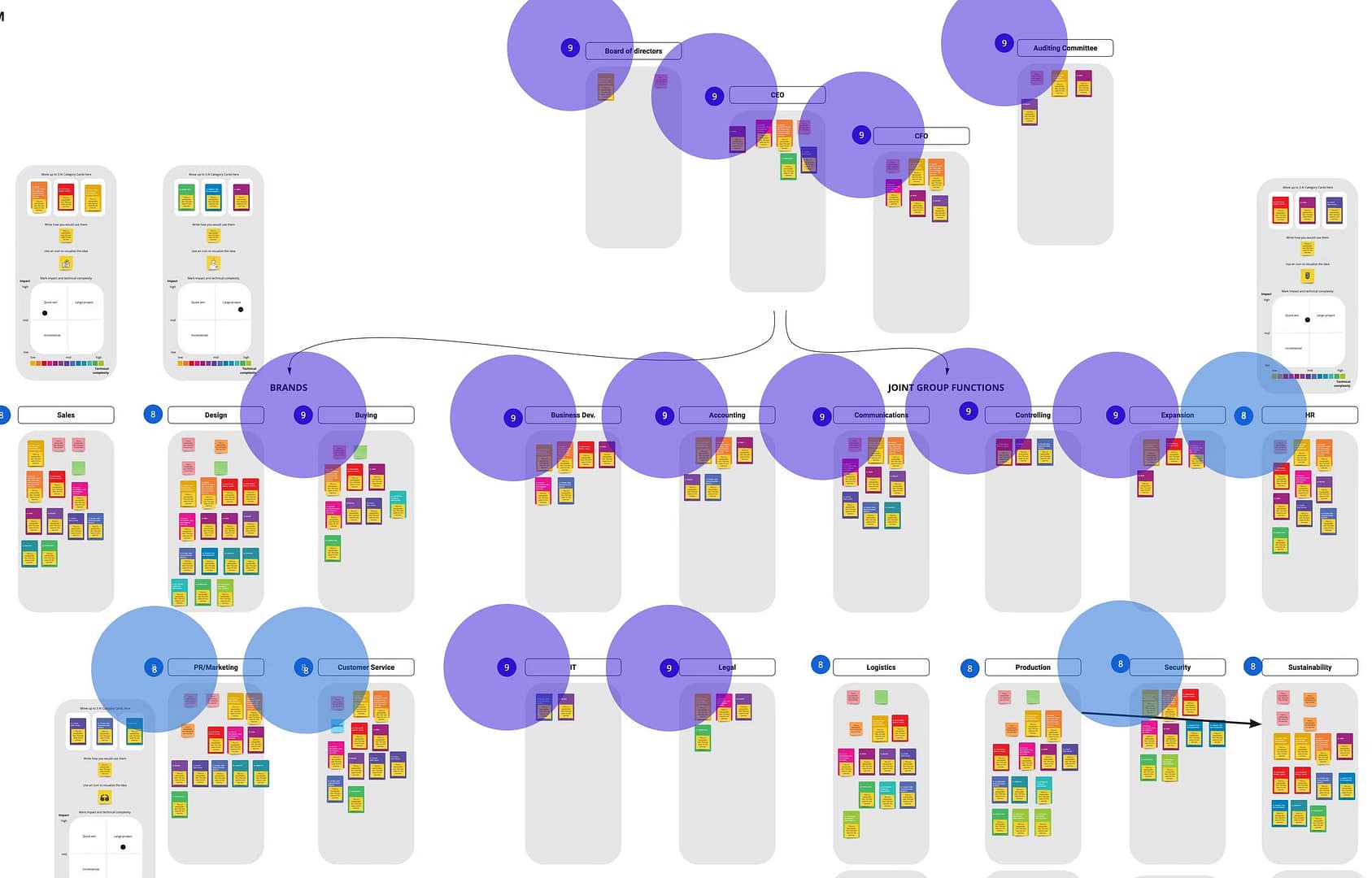In the rapidly evolving world of Artificial Intelligence (AI), businesses face a pivotal choice: adapt and innovate, or risk being left behind. As someone passionate about AI and its transformative potential, I’ve realised that the key to leveraging AI lies not just in the technology but in how we guide teams to harness it effectively. That’s where the role of an AI Design Sprint™ facilitator comes into play—a role I believe is pivotal for any organisation striving to stay ahead in this competitive landscape.
Facilitators are more than just workshop leaders; they are architects of success, building bridges between ambition and execution. In this article, I’ll share why this role matters, how it fast-tracks innovation, and why it’s the framework of choice for industries looking to unlock AI’s potential.
The New Era of Leadership: Why Facilitators Matter
Facilitators sit at the intersection of vision and action. In exploring the potential of AI Design Sprints™, it’s clear that these structured workshops empower teams to break free from inertia and transform abstract ideas into tangible results. While traditional roles in leadership focus on managing teams, facilitators focus on unlocking the collective potential of those teams.
Consider an agricultural supply chain company facing inefficiencies in tracking inventory and forecasting demand. Without a clear framework, their teams might struggle to align priorities, leading to confusion and missed opportunities. As a facilitator, our role would be to guide them through a structured process to map their workflows, pinpoint bottlenecks, and collaboratively design an AI-powered solution. We’re not just managing the process; we’re enabling the team to create something transformative.
Fast-Tracking Innovation Through AI Design Sprints™
What makes the AI Design Sprint™ so powerful is its ability to compress months of work into just a few days. The framework, developed by 33A, is designed to help teams quickly align, ideate, and prototype AI-driven solutions. Each phase of the sprint builds on the last, creating momentum and ensuring that every participant is focused on the same outcome.
For example, in the Mapping Phase, an energy utility company might outline the current challenges of predicting equipment maintenance needs. By identifying recurring failures and inefficiencies, the team could transition into the Framing Phase, focusing on the question: “How might we use AI to anticipate equipment breakdowns and minimise downtime?”
By the time they reach the Concept Development Phase, the team could brainstorm a predictive maintenance solution using AI-powered sensors and data analytics. Through prototyping and validation, they’d leave the sprint with a functional roadmap for implementation—something that would otherwise take months of disjointed meetings to achieve.
The Facilitator’s Toolkit: Enabling Teams to Thrive
Facilitators are equipped with tools and techniques designed to bring out the best in their teams. For instance, during an AI Design Sprint™ focused on retail operations, the facilitator might use 33A’s AI Method Cards to explore potential applications for optimising inventory management. These tools provide structure and focus, ensuring that brainstorming sessions remain productive and aligned with the sprint’s objectives.
Momentum is another critical aspect of facilitation. During the Tech Check Phase, the facilitator ensures the proposed solution is feasible, both technically and strategically. This phase is particularly important in industries like transportation, where technical complexity often intersects with operational constraints. For instance, a team exploring AI for real-time traffic management could use this phase to validate their solution against data availability and processing requirements.
Potential Applications Across Industries
The versatility of the AI Design Sprint™ framework makes it an excellent tool for a wide range of industries. Here are some potential applications that showcase its relevance:
Agricultural Supply Chain: Teams could explore AI-powered inventory forecasting to reduce waste and optimise stock levels, ensuring that products reach markets efficiently.
Energy Utilities: AI solutions for predictive maintenance could minimise equipment downtime and improve operational reliability, enhancing service delivery.
Retail: Retailers could use the framework to prototype personalised shopping experiences powered by AI, improving customer satisfaction and increasing sales.
Transportation and Logistics: Teams might explore AI solutions for optimising delivery schedules or managing traffic flow to improve efficiency and reduce delays.
Each of these examples highlights how the AI Design Sprint™ framework can be tailored to meet the unique needs of different industries, delivering actionable prototypes and strategic direction.
How Facilitators Build Organisational Success
Facilitators aren’t just leaders of workshops; they are drivers of organisational transformation. By enabling teams to collaborate effectively and focus on actionable outcomes, facilitators help build a culture of innovation and agility.
One of the most rewarding aspects of facilitation is seeing the impact it has on the people involved. Teams leave the sprint not just with a prototype but with a renewed sense of purpose and confidence. This cultural shift is one of the most powerful outcomes of the AI Design Sprint™ framework, creating a foundation for continuous improvement and long-term success.
Ready to Take Action?
For Companies Ready to Transform with the AI Design Sprint™
The future of business is AI-driven, and achieving alignment, efficiency, and measurable results has never been more important. If your organisation is looking to experience the transformative power of the AI Design Sprint™ firsthand, I can help. Contact Jacobus van Niekerk
As a certified AI Design Sprint™ facilitator, I specialise in guiding teams through this innovative framework. Together, we’ll tailor the process to your company’s unique challenges, ensuring your team gains clarity, alignment, and practical solutions. If this sounds like the kind of transformation your organisation needs, let’s talk. Comment “Workshop Ready” below, and I’ll get in touch to discuss how we can create real impact for your business.
For Aspiring AI Design Sprint™ Facilitators
If you’re ready to step into the role of a facilitator and lead transformative workshops yourself, there are exciting opportunities waiting for you. Join one of the comprehensive boot camps (AI Design Sprint™: Products & Services ) and (AI Design Sprint™: Process Automation) to gain the skills and confidence needed to facilitate your own AI Design Sprint™ workshops. Whether you want to guide teams through aligning strategies or create impactful solutions, the boot camp programmes are designed to empower you.
Not sure if you’re ready for the full boot camp? Start with an AI Design Sprint™ Experience Session to get a taste of the process in action. If this resonates with you, comment “Facilitator Ready” below, and I’ll personally DM you the link along with an exclusive coupon to sign up for an experience session or a boot camp.

